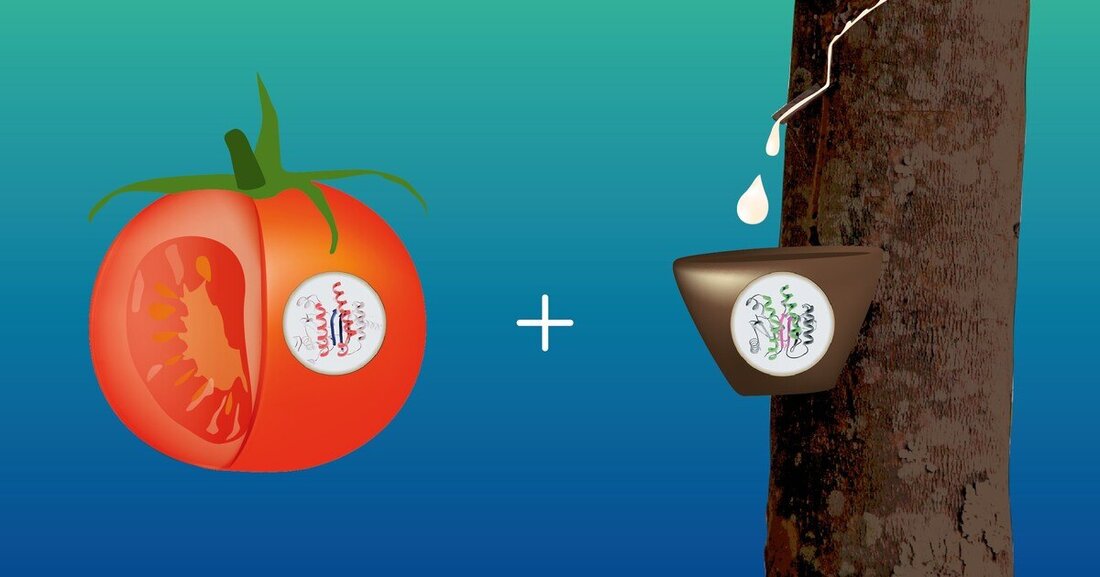New tire technology with tomato enzymes
In order to make the tires of the future more sustainable, Falken is researching a new technology.

New tire technology with tomato enzymes
Sumitomo Rubber Industries (Falken's parent company) and other research institutions in Japan have developed a process that leads to further use of the natural rubber resource and thus to the development of new rubber versions that also contribute to optimizing the general tire properties.
The researchers have identified a section of a natural rubber synthase that plays an important role in controlling the polymer chain length of natural rubber. Synthases are “active” enzymes that are responsible, for example, for producing a compound from elements or for complex composite substances to be produced from simply structured compounds.
And now tomatoes come into play: Both enzymes – those from natural rubber and those from tomatoes – have similar structures and belong to the same enzyme group. With this knowledge, it was possible to identify a segment of the polymer chains in natural rubber that influences the chain length. This recombination of the tomato enzyme through the same segment of natural rubber results in a biomolecule that has better properties than natural rubber and which tire engineers take advantage of to further optimize the tires.
“Here we show once again that we keep our promise to work on technologies that contribute to a sustainable society,” says Bernd Löwenhaupt, Managing Director of Sumitomo Rubber Europe, commenting on the research results. “We expect that we can contribute to a stable supply of natural rubber and offer tires that combine safety and durability with low environmental impact.”

 Suche
Suche
 Mein Konto
Mein Konto